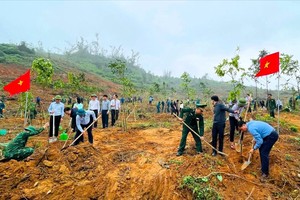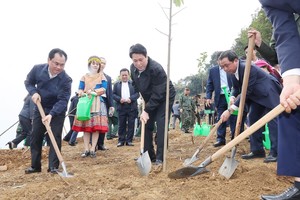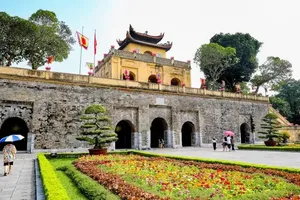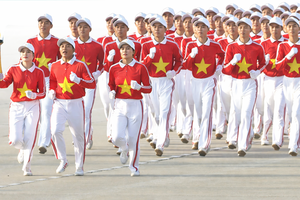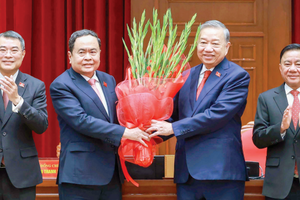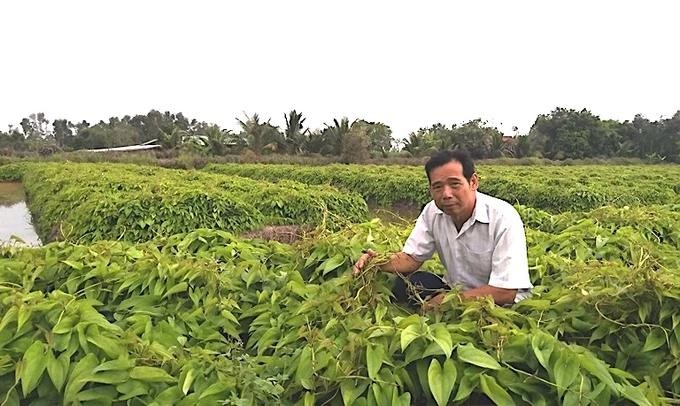
Droughts, saltwater intrusion, and water scarcity have significant adverse effects on populations, especially those reliant on agriculture. Over recent years, ministries, sectors, local governments, and farmers have collaboratively implemented numerous solutions to address these challenges.
Good strategies include the conversion of inefficient rice fields to alternative crops and the diversification of agricultural practices, which have demonstrated early signs of economic efficiency.
In the Mekong Delta Province of Tien Giang’s Tan Phuoc District, the agriculture sector has implemented strategies to mitigate the impacts of saline and acidic water sources. By encouraging farmers to diversify their crop production, particularly through the cultivation of vegetables such as melons, taro, and cassava, the district has achieved initial success in enhancing agricultural productivity and increasing farmers' incomes.
After conducting research and discovering that taro thrives in the alum soil of Dong Thap Muoi area, farmer Ho Phuoc Binh from Tan Hoa Thanh Commune in Tan Phuoc District decided to convert one hectare of unproductive rice fields into a farm for growing taro and cassava.
On average, he harvests about 15 tons of crops each year, selling them for VND25,000 to VND30,000 per kilogram, depending on the season.
According to the relevant authorities in Tan Phuoc District, the communes of Tan Hoa Thanh, Tan Hoa Tay, and Thanh My are leading the way in cultivating food crops on the alum-affected lands of the Dong Thap Muoi in the Mekong Delta. This initiative aims to address climate change, boost income, improve livelihoods, and reduce the impact of natural disasters.
According to the Department of Agriculture and Rural Development of Tan Phuoc District, farmers in the district have cultivated 1,524 hectares of various food crops in the first 10 months of the year, achieving 101.6 percent of the annual target.
Currently, farmers have harvested 1,426 hectares of crops, with an average yield of 20.7 tons per hectare, resulting in a total vegetable output of over 29,500 tons. This includes 304 hectares of watermelon, primarily grown in Phuoc Lap and Thanh Hoa communes. The average yield of Tan Phuoc watermelon is 22.35 tons per hectare, with the region's total output nearing 6,800 tons.
In addition to food crops, during the year, farmers in Tan Phuoc District also grew nearly 550 hectares of food crops, mainly taro with 512 hectares, the rest is cassava.
